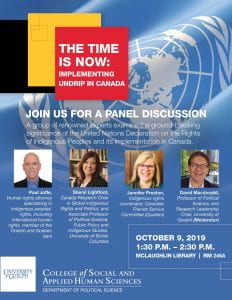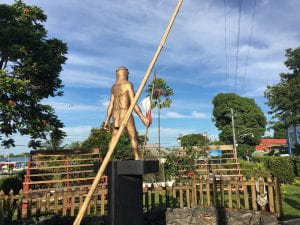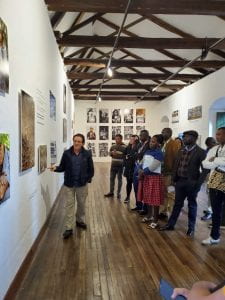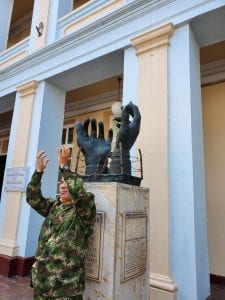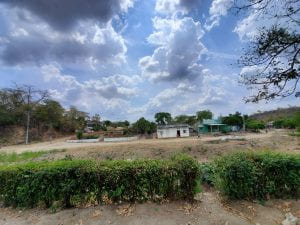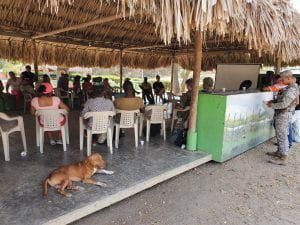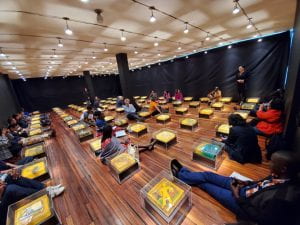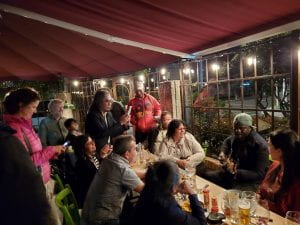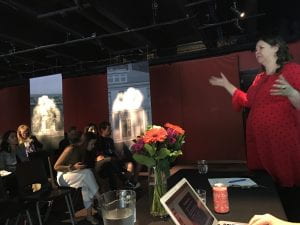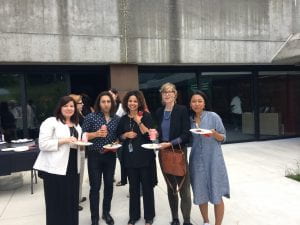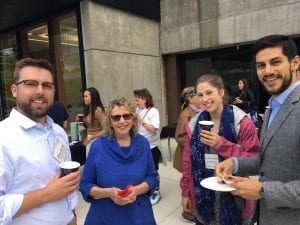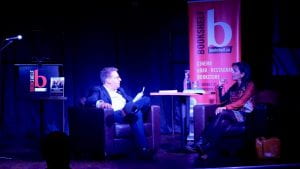From July 2017 to Jul 2020, I was appointed to a three year term as the inaugural Research Leadership Chair for the College of Social and Applied Human Sciences.
Vision Framework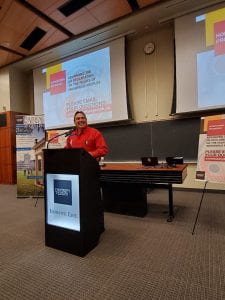
The vision framework of this chair position was encapsulated by the following: “How can we live better together? Reconciliation, Indigeneity, diversity, and change in western settler states”. This theme brings together much of my work over the past 20 years. Relationships between settlers of European origin, Indigenous peoples, and communities of colour are changing, especially in an era of Indigenous resurgence and Canada’s evolving demography.
As western settler states like Canada and Aotearoa New Zealand face the reality that Indigenous peoples were displaced and marginalized, and that cultural genocide was committed in the process of colonization, how should we engage with this history and its legacies as we move forward? Is the Canadian state merely a neutral container for diverse peoples, or should its primarily European-derived institutions adapt as we better engage the history and legacies of colonization, and the history of discriminatory policies against people of colour? How should Canada as an imagined community be understood in light of many of the difficult truths we are learning about ourselves and our history? What makes for a successful relationship between Indigenous peoples, settlers of European origin, and settlers and other people of colour? My current research trajectory seeks to explore these and other pertinent questions.
RLC Activities
I have carried out numerous activities as a RLC. I was able to work with external contacts to bring Assembly of First Nations National Chief Perry Bellegarde to campus in October 2019. This trip included a dinner for academics and others at the president’s house and a public lecture. As well, I was able to bring Sheryl Lightfoot, Paul Joffe, and Jennifer Preston to campus for a panel presentation on the UN Declaration on the Rights of Indigenous Peoples.
Research Links with Trinidad and Tobago
In 2018, I began developing relations with the Institute of International Relations at the University of the West Indies (Port of Spain) and with the Santa Rosa First Peoples. I met with IIR director Jessica Byron and other Institute faculty, as well as the Dean of the Law School (Rose-Marie Belle Antoine) in March, 2018, and also gave a talk to their Institute and the public. Several Indigenous leaders attended, including Chief Ricardo Bharath Hernandez, who is one of the key people responsible for the resurgence of the Santa Rosa First Peoples Community.
At the invitation of Chief Ricardo, I delivered a keynote address to their Indigenous history week in October, 2018, and spent the week with the Santa Rosa First Peoples people, which included public events and a march through the capital to Parliament to promote memory and visibility of Indigenous peoples.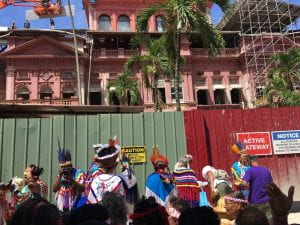
Trinidad is a fascinating case for comparative Indigenous research as their Indigenous peoples have been recognized to some extent by the state and are working towards forms of recognition. At the same time, because of the history of slavery and indentured labour, the majority of the population are either African or Indian, and not white settlers. This brings with it very different histories and narratives in terms of nationalism, colonialism, and a sense of responsibility for Indigenous peoples and their legal and political status. While the TT government signed onto the UN Declaration on the Rights of Indigenous Peoples, they have made little more than rhetorical commitment to political and social change.
Transformative Memory Partnership
The Transformative Memory Partnership (funded in part by the SSHRC) seeks to create an international network of scholars, artists and community-based memory workers to co-create and exchange knowledge and practice on the ways memory is employed to address the responsibility people have towards the well-being and rights of others in the aftermaths of mass violence. Official, often state-created or endorsed memory projects include trials, truth commissions, national inquiries, and museums, commissioned works of art or monuments. Such projects exist alongside unofficial, often victim-led and community-based memory projects, such as the creation of public shrines or tributes to the dead, marches, protests, and creative works, such as memory quilts, art installations and performances. The partnership will ask the following core questions: How and why do people forget, deny or remember responsibility for mass violence? Who defines this and who is silenced? What are the actions that foster transformative way s of remembering and relating to one another? What are the practices and actions that on the contrary inspire pro status quo memory building process? How do we listen to loss and foster an ethics of responsibility ? What futures are imagined?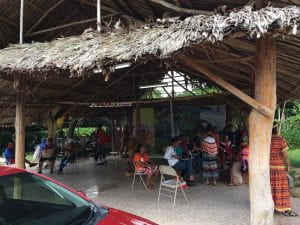
Academic Exchange to Acholiland in Uganda
As part of my role in this project, and as the representative for the University of Guelph on the executive, I travelled to Uganda from February 18-22, 2019. This was the first of three international exchanges in knowledge sharing, creation and learning. The exchange in Uganda was coordinated with the local Justice and Reconciliation Project (JRP) and the Women’s Advocacy Network, based in Gulu. A team of 14 academics, artists, and others from Indonesia, Canada, and Colombia were on the exchange. The focus was on memory and commemoration after the violent conflict which pitted the Lords Resistance Army against government and other forces. We visited massacre sites, met with survivors, and gained a greater understanding of the made aspects of this brutal war.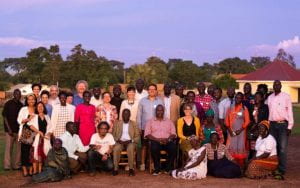
Please see attached for my reflections.
Academic Exchange to Colombia – Bogota and Carmen de Bolivar
The second part of the 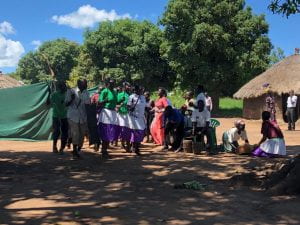 exchange was an exchange to Colombia, where we met with academics, artists, activists, Indigenous leaders, and civil society organizations. This took place from 15-25 February, 2020, and involved meetings and panels on memory and violence at the National University of Colombia, full day discussions of memory and representation, site visits to the Military Museum, the commemorative site Fragmentos, the studio of Erika Diettes, creator of Relicarios, meeting with the Colombian photographer Jesús Abad Colorado and
exchange was an exchange to Colombia, where we met with academics, artists, activists, Indigenous leaders, and civil society organizations. This took place from 15-25 February, 2020, and involved meetings and panels on memory and violence at the National University of Colombia, full day discussions of memory and representation, site visits to the Military Museum, the commemorative site Fragmentos, the studio of Erika Diettes, creator of Relicarios, meeting with the Colombian photographer Jesús Abad Colorado and 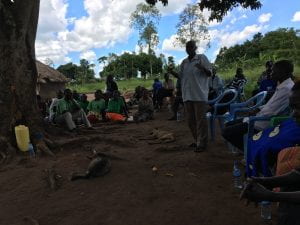 discussing his documentary and photographic exhibition on the Colombian armed conflict and disappeared. Exchange with representatives (magistrates, commissioners and coordinators) from the three organizations of the Integral TJ System: The Special Jurisdiction for Peace (JEP); the Truth Commission, and the Unit to Search for the Disappeared. We also journeyed to Carmen de Bolivar (Small town in the Montes de Maria region). Exchange with the Communications Collective of Montes de Maria “Line21” / Colectivo de Comunicaciones de Montes de María, Linea XXI. We visited Exchange in San Basilio de Palenque (the first free Blacktown of the Americas). Guided visit of the community based travelling museum of historical memory: El Mochuelo. Some of us spent the day at El Salaudo where an infamous massacre of civilians took place in 2000.
discussing his documentary and photographic exhibition on the Colombian armed conflict and disappeared. Exchange with representatives (magistrates, commissioners and coordinators) from the three organizations of the Integral TJ System: The Special Jurisdiction for Peace (JEP); the Truth Commission, and the Unit to Search for the Disappeared. We also journeyed to Carmen de Bolivar (Small town in the Montes de Maria region). Exchange with the Communications Collective of Montes de Maria “Line21” / Colectivo de Comunicaciones de Montes de María, Linea XXI. We visited Exchange in San Basilio de Palenque (the first free Blacktown of the Americas). Guided visit of the community based travelling museum of historical memory: El Mochuelo. Some of us spent the day at El Salaudo where an infamous massacre of civilians took place in 2000.
Other activities
On 6 June, 2019, I launched my book The Sleeping Giant Awakens at the 2019 Congress of the Humanities in Vancouver, at the UBC Indian Residential School History and Dialogue Centre. Metis historian Tricia Logan was the moderator, with panelists Sheryl Lightfoot and Paulette Regan.
- I held a second book launch in October at the Bookshelf in Guelph, focused on the University and wider Guelph community. Stephanie and Ben Minett were instrumental in this launch. Kim Anderson very kindly agreed to moderate.



